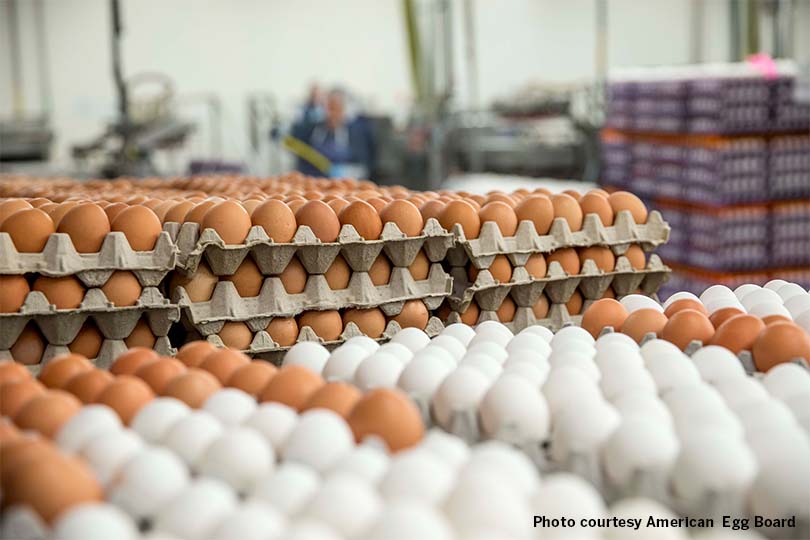Egg prices have increased but remain lower than what consumers paid earlier in the year, according to Texas A&M AgriLife Extension Service experts.
That is likely due to demand driven by the Easter holiday, said Dr. David Anderson, AgriLife Extension economist.
Egg demand typically increases around the holidays for baking and eating, but the Easter holiday also includes the purchase of eggs to dye and hide.
“We’re actually producing more eggs than we did a year ago, but eggs have a seasonal pattern to them,” he said, “And with Easter being earlier than usual this year, we’re also seeing prices rise earlier than we typically would.”
The U.S. Bureau of Labor’s February Consumer Price Index for eggs shows a 5.8% increase at an average price of $3 per dozen. That’s 47 cents per dozen higher than January, but 17% below the level of 2023.
Egg prices peaked in February at $3.29 per dozen, according to grocery store data from the U.S. Department of Agriculture (UDSA).
Last Easter, USDA reported eggs retailed for $2.74 per dozen, and consumers can expect them to be around $2.99 per dozen this year, Anderson noted.
He expects the cost of eggs to decline in Texas after Easter, but if demand isn’t as strong as expected, stores may drop prices closer to Easter.
“But I don’t think I’d wait until right before Easter to buy your eggs, just in case the demand is stronger than expected,” he said. “You probably don’t want to wait too long to get eggs, especially if you’re planning on using real ones for your Easter egg hunt.”
The effect of avian influenza has been minimal on egg prices this year. Since the start of the outbreak in 2022, producers have been able to replace the egg-laying hens lost, and consumers have seen that reflected in lower egg prices.
Only one flock in the state has been infected this year, and that was a backyard flock in Moore County.


Leave A Comment